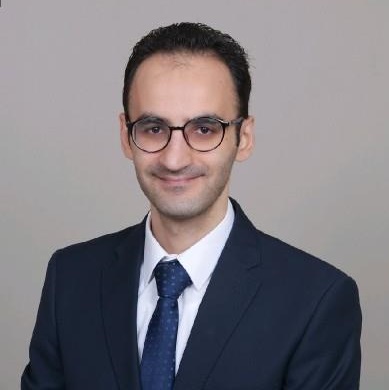
4 minute read
Drugs like Ozempic may help lower 2nd stroke, heart attack risk
By Mohammad Ali Sheffeh
Popular diabetes drugs have been linked with a lower risk of experiencing a second stroke or a heart attack. About 12.2 million new strokes are diagnosed each year.
One in four stroke survivors will experience another stroke.
Stroke survivors are at an increased risk of developing major heart issues, such as heart attack.
A new study says that type 2 diabetes medications GLP-1 agonists and SGLT2 inhibitors may help lower a stroke survivor’s risk of experiencing a subsequent stroke, heart attack, or death, compared to those who did not take these medications.
According to the World Stroke Association, one in four adults over the age of 25 will have a stroke during their lifetime, and there are about 12.2 million new strokes diagnosed each year.1
Previous research shows that one in four stroke survivors2 will experience another stroke, and people who have a stroke are at a higher risk 3 of developing major heart issues during the first month after their stroke, such as heart attack — clinically known as myocardial infarction.4
Past studies show that stroke survivors can possibly decrease 5 their secondary stroke and heart attack risk through lifestyle changes — such as moving more, eating a healthy diet, and not smoking — and medications.6
Now a new study 7 recently presented at the American Heart Association’s Scientific Sessions 2024 says that glucagon-like peptide-1 receptor agonists (GLP-1 agonists) — which include medications like Ozempic and Wegovy — and sodium glucose cotransporter 2 (SGLT2) inhibitors may help lower a stroke survivor’s risk of experiencing a subsequent stroke, heart attack, or death, compared to those who did not take these medications.8
Why focus on GLP-1 and SGLT2 drugs for stroke care?
For this study, researchers analyzed medical data for more than 7,000 adults who had an ischemic stroke — the most common type of stroke caused by a blood clot in the artery that brings blood to the brain — between January 2000 and June 2022.9
Researchers looked at whether or not study participants had been prescribed either a GLP-1 agonist or SGLT2 inhibitor medication after their initial stroke.
“GLP-1 receptor agonists and SGLT2 inhibitors are two types of medications often used to help people with diabetes manage their blood sugar,” M. Ali Sheffeh, MD, an internal medicine resident at the Henry Ford Medical Center in Warren, MI, research scholar in the Cardiovascular Department at the Mayo Clinic in Rochester, MN, and lead author of this study explained to Medical News Today.
“They also have benefits for heart and kidney health, which has led to their use in patients with certain heart conditions or those at risk of cardiovascular disease,” Sheffeh continued.10
“These drug classes have been studied over the last few years in randomized clinical trials and have shown better cardiovascular outcomes in patients with obesity, diabetes, heart failure, and chronic kidney disease,“ he added.11
GLP-1, SGLT2 lower heart attack, second stroke risk in stroke survivors
After an average follow-up of three years, Sheffeh and his team found that stroke survivor participants taking either a GLP-1 or SGLT2 medication had a 74% lower mortality risk and 84% lower risk of having a heart attack, compared to those not taking these drugs.
And participants taking either medication also had a decreased risk of experiencing a secondary stroke, compared to those not taking them.
“The current guideline for stroke prevention recommends the use of blood thinners, controlling blood pressure, and cholesterol lowering medication in addition to lifestyle modification in order to decrease the risk of a second stroke,” said Sheffeh.12
“If our findings are externally validated, that might lead to changing practice and we might start prescribing these medications for patients with stroke to prevent future events,” he pointed out.
“The preventive role of these drug classes might be through their effects on cardiovascular disease risk factors. It’s been shown that these drugs might lower blood pressureTrusted Source, improve cholesterol levelTrusted Source, and control blood sugar levels. In addition to that, GLP-1 receptor agonists might decrease platelet aggregation and that will lower the risk for another stroke.”13

Mohammad Ali Sheffeh Department of Cardiovascular Medicine, Mayo Clinic, Rochester, MN. Dr. Mohammad Ali Sheffeh is a medical professional specializing in cardiovascular medicine at the Mayo Clinic in Rochester, Minnesota. Dr. Sheffeh’s academic and professional work is associated with Mayo Clinic’s Department of Cardiovascular Medicine, where he collaborates with experts in diagnosing and treating heart-related conditions.










